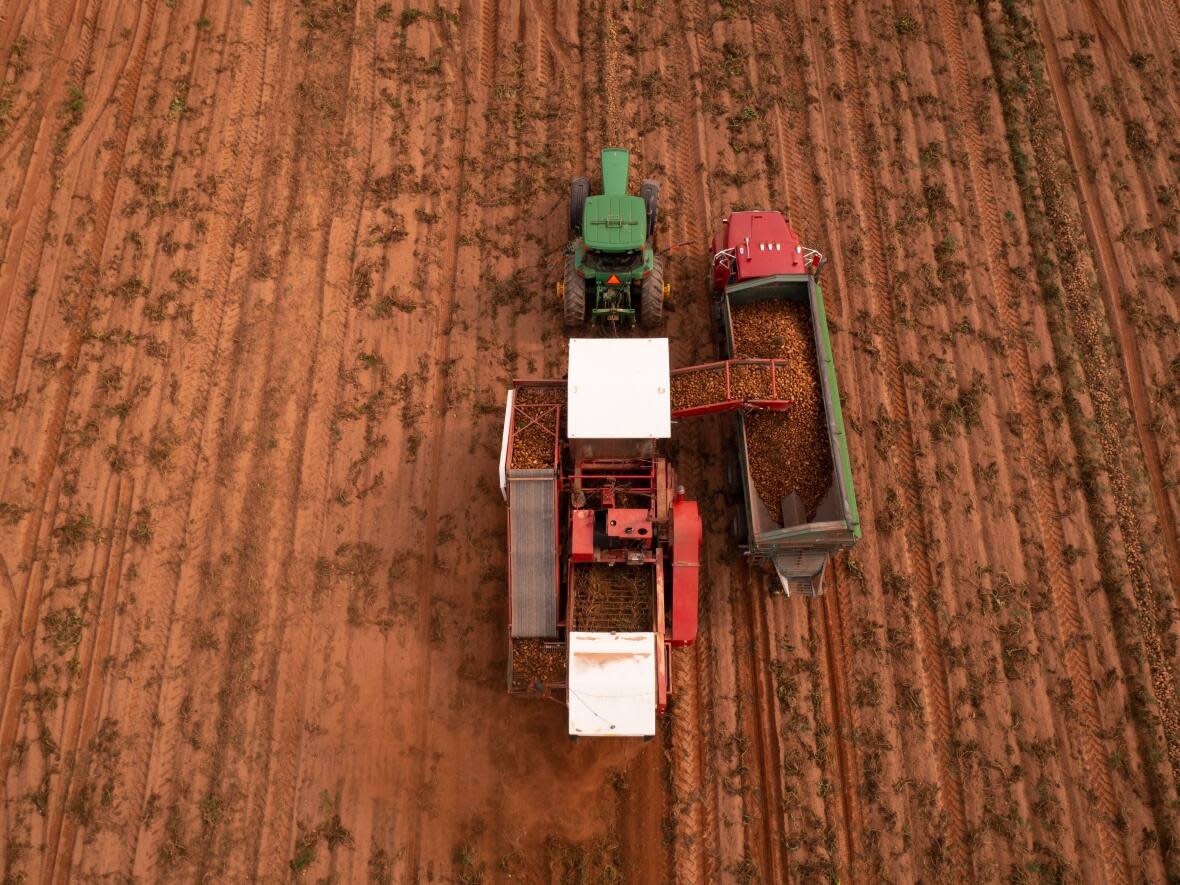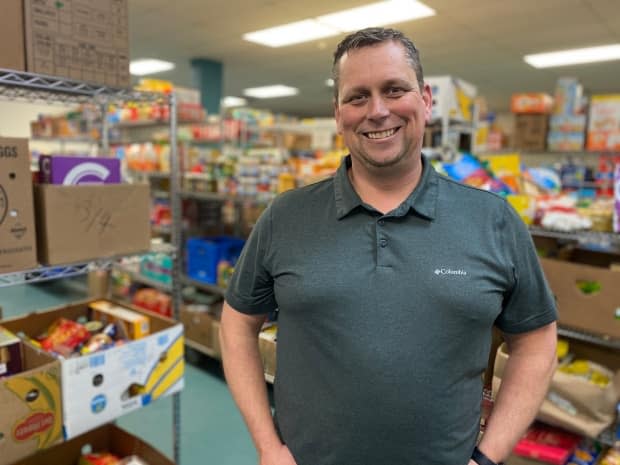Surplus potatoes from federal research farm being donated to Charlottetown food bank

In the past, most of the potatoes grown at the Harrington Research Farm in central P.E.I. would be composted. Some would be turned into animal feed, and the rest would become potato starch.
But now, they have a new purpose — feeding hungry Islanders.
"Since we're in Prince Edward Island, obviously potatoes are what we grow a lot of and they're in our rotation crops all the time," said Chris Kirby, acting associate director of Agriculture and Agri-Food Canada's Charlottetown Research and Development Centre, which operates the farm.
"We never want to compete with a farmer, but we also want to feed the Canadian public."

The farm grows produce for a variety of reasons, including improving best practices, testing pest resistance, and as rotational crops to keep soil healthy.
"We have to keep things going under the standard conditions that are used in Prince Edward Island," said Kirby.
Crops that are experimented on will still be directed away from human consumption, but the spuds grown in typical farm conditions will now end up at Charlottetown's Upper Room Hospitality Ministry.
Wasting 'perfectly good food'
In 2022 alone, more than 7,000 pounds of potatoes went to the food bank. And so far this year, 3,500 pounds were moved from the Research Farm's cold storage facilities to the food bank, one pallet at a time.
"We see hundreds of families every month coming in here with not enough food," said Mike MacDonald, executive director of The Upper Room. "So when there is food that's being wasted — perfectly good food — it does bother us, for sure."

Across Canada, it's estimated that $50 billion worth of food is lost or wasted every year, even though many Canadians are struggling due to low incomes and high prices.
"This all came about after dealing with the pandemic, and everybody's worried about food security," said Kirby.
"So if we can give a constant supply of potatoes to the food bank from somewhere in December, January until April, that's a significant amount of time that they're able to get a product that they can then share with those in need. So we're very happy to be able to be a part of the solution for the public."
The initiative also exists in other provinces, with the Agriculture and Agri-Food Canada research farm in Newfoundland donating carrots and cabbage, apples being donated in Nova Scotia, and cherries and apples in British Columbia.
The Harrington Research Farm also grows other crops like barley and wheat, but potatoes made the most sense to donate. Kirby says the farm will keep up the donations as long as the food bank will take them.
"As long as they need it and we still have it, we will be giving them more potatoes," he said, adding, "I can't imagine we will stop growing potatoes anytime soon in Prince Edward Island."


